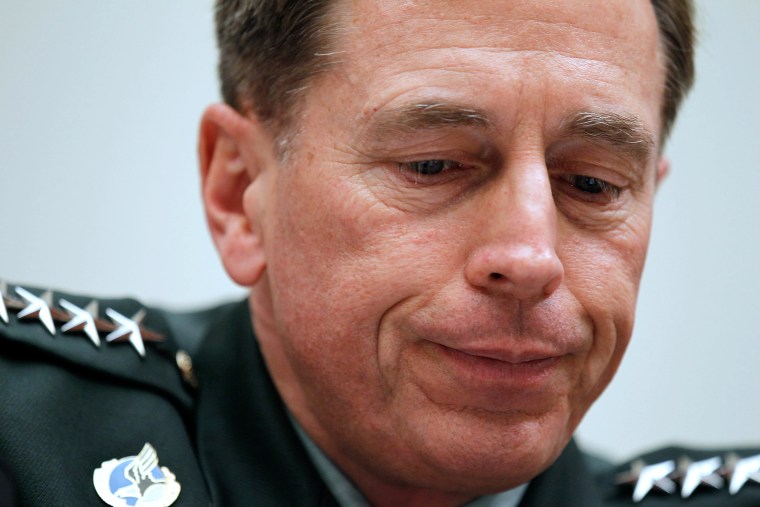Retired Army Gen. David Petraeus apologized again for "a serious mistake" in sharing classified information with his mistress, Paula Broadwell, during testimony to the Senate Armed Services Committee on Tuesday.
It was his first appearance before members of Congress since resigning as CIA director after the controversy over his affair with Broadwell, his biographer. Petraeus, who retired in 2011 after commanding U.S. and coalition efforts in Iraq and Afghanistan, was later sentenced to two years' probation and fined $100,000 for sharing classified material with Broadwell as she worked on the book.
Related: CIA Director David Petraeus Resigns, Cites Extramarital Affair
"Four years ago, I made a serious mistake — one that brought discredit on me and pain to those closest to me," he told the committee. "It was a violation of the trust placed in me and a breach of values."
Petraeus added that he can't undo what he did he "can only say how sorry I am to those I let down."
Asked after the committee hearing why he felt he needed to apologize again — he has previously apologized at his sentencing and in other public forums — Petraeus said: "I thought I owed it to this body."
Related: Jill Kelley: The woman Near the Heart of a Scandal
Members of the committee welcomed Petraeus back to the congressional witness seat and praised his governmental service. A few thanked him for his apology, but their questions were about Iraq, Syria and Iran.
Petraeus offered the Senate Armed Services Committee his recommendations for how to address problems in the Middle East, which he said unlike Las Vegas "what happens in the Middle East is not going to stay in the Middle East."
He suggested enhanced U.S. support for Iraqi security forces and Sunni tribal and Kurdish fighters. In Syria, he recommended the U.S. take a tougher stance against President Bashar Assad, warning him that if he continues dropping barrel bombs, the U.S. will stop the Syrian air force from flying.
Petraeus warned against rushing to oust Assad without knowing who would fill the resulting political vacuum in the country. He said he supports setting up enclaves protected by coalition airpower to support moderate Sunnis, give civilians refuge within Syria and provide a place to train additional forces.
Republicans have called for buffer zones and some Democratic lawmakers have recently embraced the idea. Petraeus said that while it might not be necessary, he was "not at all opposed to seeing U.S. troops on the ground in an enclave" in an advise-and-assist role.
Petraeus lamented that the U.S. is no closer today to having a moderate Sunni Arab ground force than it was a year ago.
Related: Military Breaks Down Small Number of U.S.-Trained Syrian Rebels
Top U.S. military officials say a handful of U.S.-trained Syrian rebels are still on the battlefield fighting the militants — far short of the U.S. goal to train and equip 5,400 rebels a year at a cost of $500 million.
On Iraq, Petraeus also suggested embedding U.S. advisers down to the brigade headquarters level for Iraqi fighting forces; exploring the use of air controllers with select Iraqi units to coordinate coalition airstrikes; and examining whether U.S. rules of military engagement for precision airstrikes are too restrictive.
But he said he was not recommending embedding U.S. personnel at the Iraqi battalion level.

